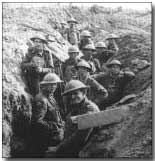As I contemplated Remembrance Day 2016, I recalled some First and Second World War veterans I’d met personally over the years, and also several who’d served in other conflicts, including the Korean War.
Some were members of congregations I’d served or of Royal Canadian Legion branches in various communities. Generally, those vets impressed me with their stalwart bearing and sense of duty, and especially their loyalty to our country.
That generation had
come through the Great Depression of the Thirties and the rise of fascism in
Europe. The noxious scent of entitlement seemed absent from them, although I
couldn’t miss recognizing the occasional expression of disgust over its
prevalence in our current society.
However, today I’m
thinking of two ladies who served on home soil during WWII. Bessie who was involved in munitions work in Brantford,
Ontario, is in her mid-nineties. I’m scheduled to lead a Remembrance Day
service in the retirement residence where she lives, and I hope to see her there.
 |
| Rev. & Mrs. A. Brndjar with Mrs. Doris Ley -- 100th B-Day! |
Doris Ley is another
great stalwart of WWII, who served on home soil. She was the guest of honour at
the country Baptist Church where my octogenarian friend Andy (the Reverend
Andrew Brndjar) is long-term interim pastor. On Thanksgiving Sunday Andy led
the congregation in a combined Thanksgiving Service and Celebration of Doris’
100th Birthday. I was honoured to play organ and sing a song of
thanksgiving at that event.
Andy took his text
from Ecclesiastes chapter 12, in which Israel’s King Solomon describes in
allegorical language the changes that often happen as people age. Bottom line:
they typically experience a decline in various physical faculties, and in some
cases, loss of cognitive function.
Doris is, however,
blessed with an amazing level of sustained health. Her sight and hearing are
good, and she can still walk unaided, except for steadying herself with a
walker. She’s always coiffed and smartly-dressed. Besides, her mind and memory
are amazingly sharp, and it’s perhaps surprising
that she has a full complement
of her own natural teeth.
 |
| Courtesy: Canadian Harvard Association |
It was appropriate
that this lady and her late husband enjoyed some retirement years together in
Tillsonburg, Ontario, which is the home of the Canadian Harvard Aircraft Association.
(The Harvards—painted distinctively in bright yellow—were used in training
pilots during WWII.)
I say “appropriate,”
because Doris Ley, in the course of her significant career as an engineering
metallurgist, worked on the famous Lancaster Bombers during the war. Therefore,
understandably, living close to the vintage Harvards was evocative for her.
 |
| Courtesy: Canadian Warplane Heritage Museum |
The Lancasters played
an important role in behalf of our country and its allies. Doris’s knowledge
and understanding of her professional field gave birth to innovative ideas in
helping solve problems that occasionally arose with them. Several years ago she
enjoyed the thrill of being taken on a brief flight in one of only two
Lancasters in the world that are currently flight-worthy.
Significant to
Doris’s life is her active Christian faith and the investment of wisdom, faith,
hope and love she made in the lives of young people through a Bible class she
facilitated, continuing until well into her 80s.
Doris, now resident
in another community, continues to take an active interest in what’s going on
around her and in the world at large, and readily shares out of her
professional experience and her many decades of confident trust in God.
 Here’s to Doris and
Bessie and those men and women who served and those currently serving at home
and abroad to maintain our freedoms and help people of other countries have
them too.
Here’s to Doris and
Bessie and those men and women who served and those currently serving at home
and abroad to maintain our freedoms and help people of other countries have
them too.
God bless'em every one. . . God bless’em!
~~+~~
~~+~~















